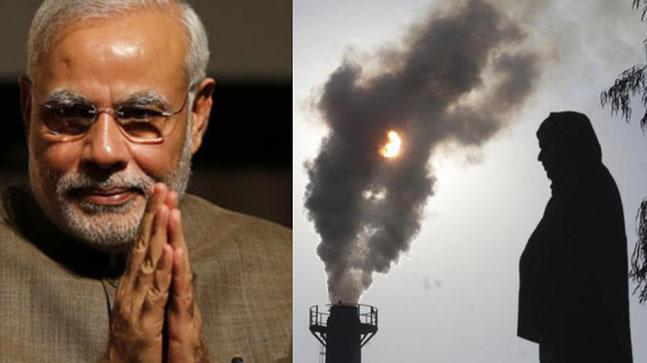Air pollution is a major problem in India as well as in other countries around the world. Every year, the residents of Delhi-NCR and other cities in the country have to deal with the issue of smog, especially in the winter season. The centre, as well as the state governments, have not been able to provide a concrete solution to the problem despite their lip service on taking concrete steps.
The Modi government had launched the National Clean Air Programme (NCAP) in January in a bid to reduce air pollution by 20-30 percent by 2024. The programme aims to reduce particulate matter (PM) in the environment by 20-30 percent in 102 cities of the country.
Now, as per reports, the Modi government has started funding the 102 cities under NCAP with initial tranche 10 crore rupees to 28 million-plus cities with more than 90 micrograms per cubic metre (ug/m3) of PM10 (particulate matter). These cities with million (10 lakh) plus population includes Delhi, Mumbai, Kanpur, Lucknow, Chandigarh, Varanasi, Bengaluru, Kolkata, Hyderabad and Patna among others.
The 102 cities were chosen on the basis of PM 10 or nitrogen dioxide level in five years from 2011 to 2015. These cities were declared as ‘non-attainment’ cities as they failed to meet air quality standards consistently for 5 years from 2011 to 2015. Maharashtra has the highest number of cities which are eligible for central government’s funding with 17 while Uttar Pradesh has 15 such cities. Manipur, Sikkim, Arunachal Pradesh, Mizoram, Tripura, Kerala, Goa and Haryana are the states from where no cities figure in the list.
The reaming 74 non-attainment cities will receive 20 lakh rupees for those with a population between five to ten lakh populations, 10 lakh each for those with below 5 lakh population. “80 of the 102 cities have already prepared their action plans and the Centre will support their pollution abatement measures,” said Union Minister of Environment Prakash Javadekar. “The budget has declared the intention of making the earth green and the sky blue. This will be achieved through more afforestation and making cities pollution-free,” he added.
As per a report by The Hindu, “The programme will be implemented in collaboration between the Ministry of Road Transport and Highways, Ministry of Petroleum and Natural Gas, Ministry of New and Renewable Energy, Ministry of Heavy Industry, Ministry of Housing and Urban Affairs, Ministry of Agriculture, Ministry of Health, NITI Aayog, and Central Pollution Control Board.” The industry and academia will also coordinate with the ministries and bodies in the implementation of NCAP.
“It is good to see the final version of NCAP out after a long wait with the vision of reducing air pollution levels across the country. The silver lining in the plan is the potential reduction of 20 – 30% by 2024,” said Sunil Dahiya, Senior Campaigner of Greenpeace India.
The control of air pollution is necessary for the country. India has recorded 1.24 million or 12.5 percent of total deaths due to air pollution. Air pollution is a big issue for the country but India has seen only seasonal environmentalists who show up during Hindu festival of Diwali being concerned about the problem. Now Modi government is making concentrated efforts to solve the problem.





















